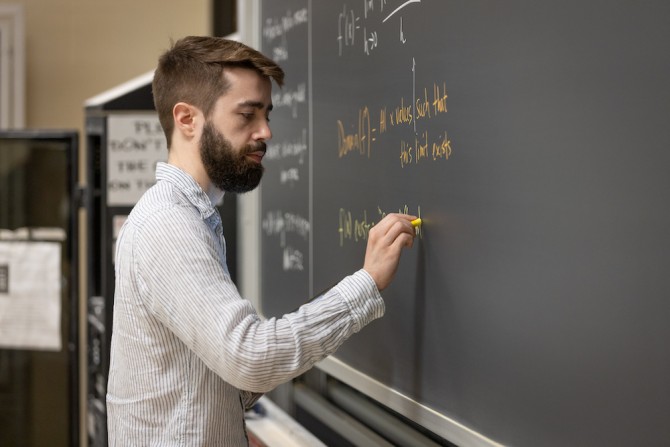News directly from Cornell's colleges and centers
Klarman fellow achieves ‘beautiful results’ with outstanding math problems
By Kate Blackwood
Ranking things – like the 100 best chess players in the world – soon gets complicated, especially when not all the participants have played each other yet. While mathematics can provide a helpful framework, it can’t yet entirely solve an open problem, introduced in the 1960s, having to do with rankings.
“The 1/3-2/3 Conjecture makes a specific prediction about how to choose two players to play a game so that the outcome of their game will tell us as much information as possible about the overall ranking,” said Christian Gaetz, a Klarman Fellow in mathematics in the College of Arts and Sciences (A&S). “I think it’s beautiful and important mathematically, and it certainly has applications for certain kinds of sorting.”
Gaetz is using his specific area of focus in mathematics – algebraic combinatorics – to approach a piece of the 1/3-2/3 Conjecture. Gaetz has solved special pieces of the problem, but the full conjecture is still open. It’s one example of how he generalizes things that are known in classical topics to a broader setting, creating bridges between fields of mathematics.
Gaetz is using the three years of the Klarman fellowship to research algebraic combinatorics. This area of mathematics uses abstract algebra in various combinatorial contexts – such as rankings – and, conversely, applies combinatorial techniques to problems in algebra.
Read the full story on the College of Arts and Sciences website.
Media Contact
Get Cornell news delivered right to your inbox.
Subscribe

